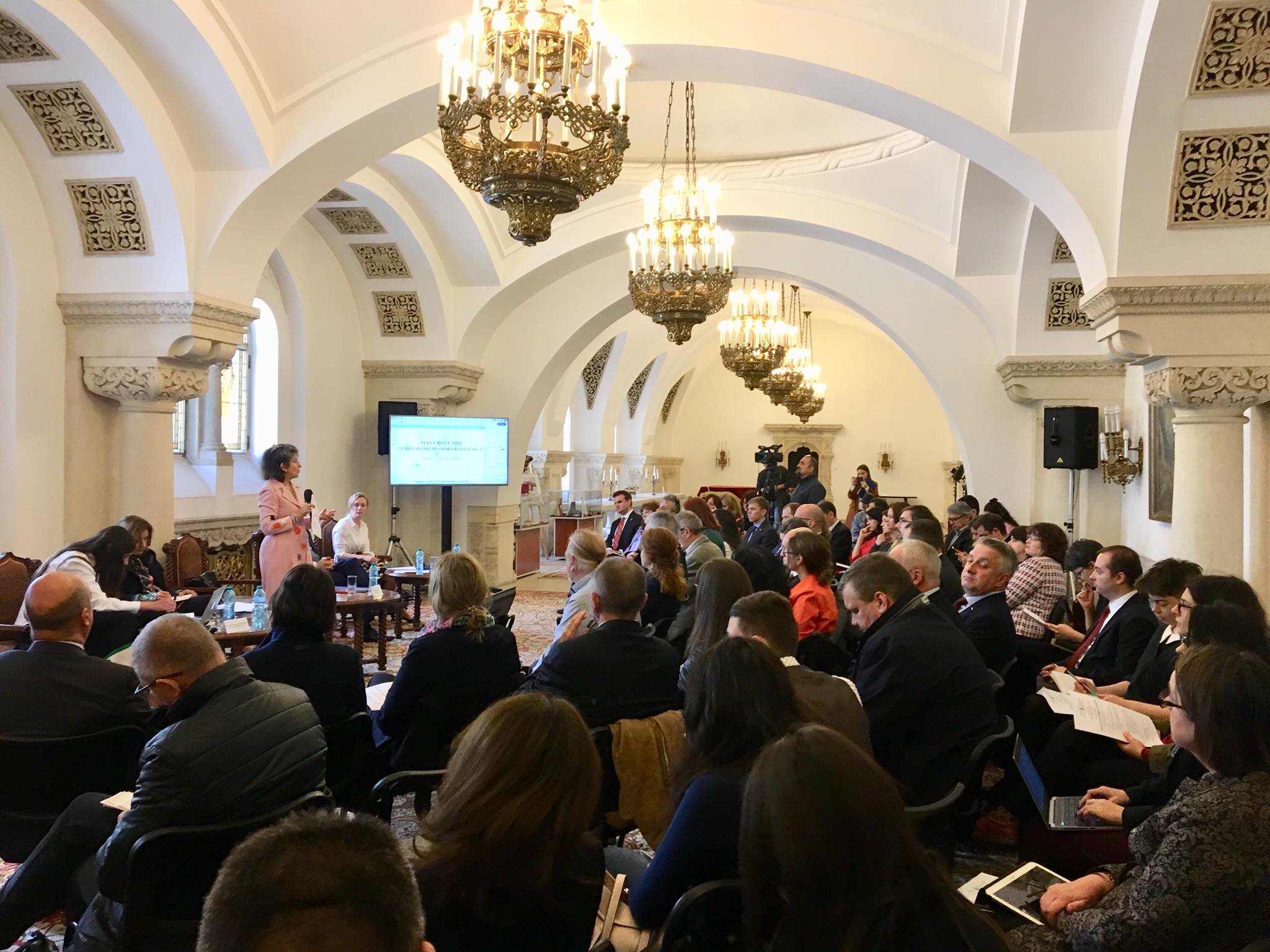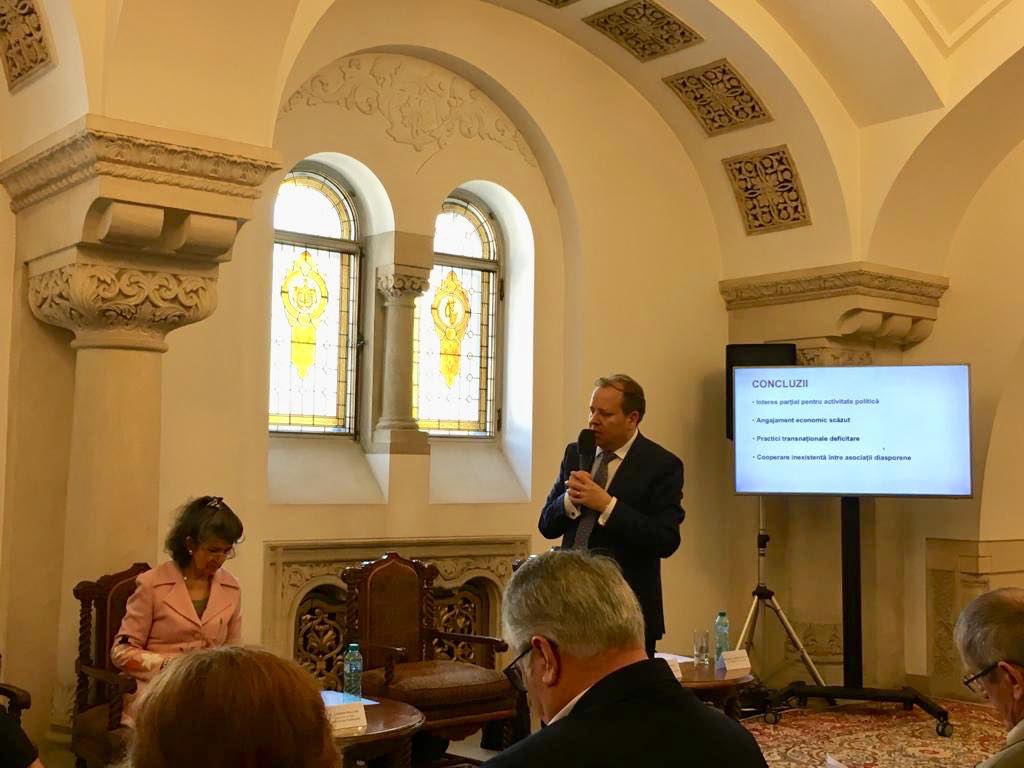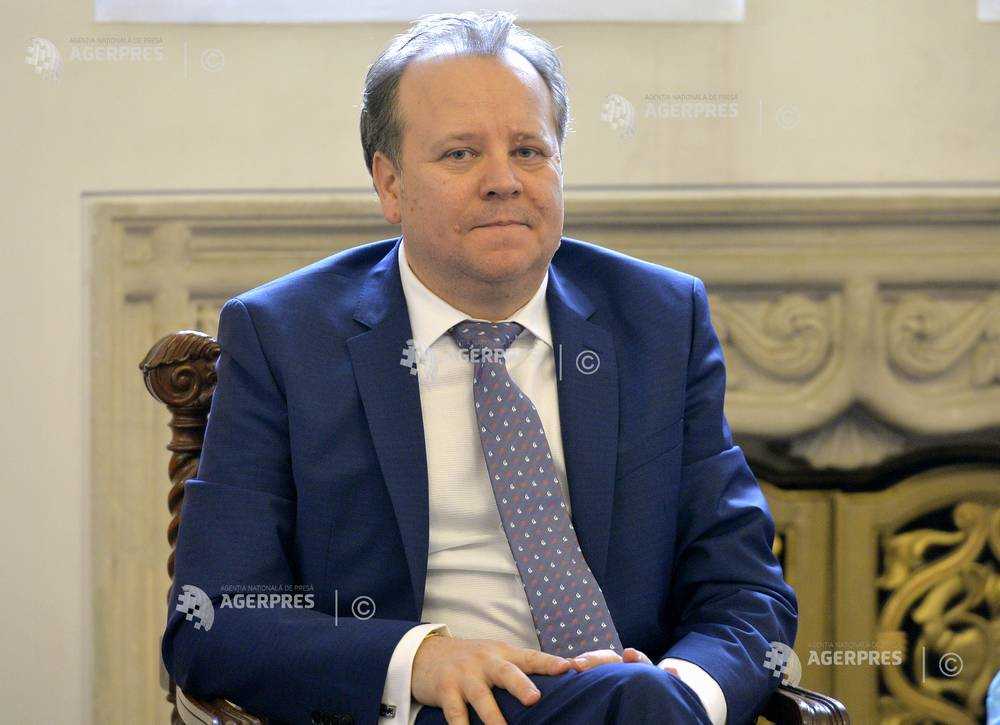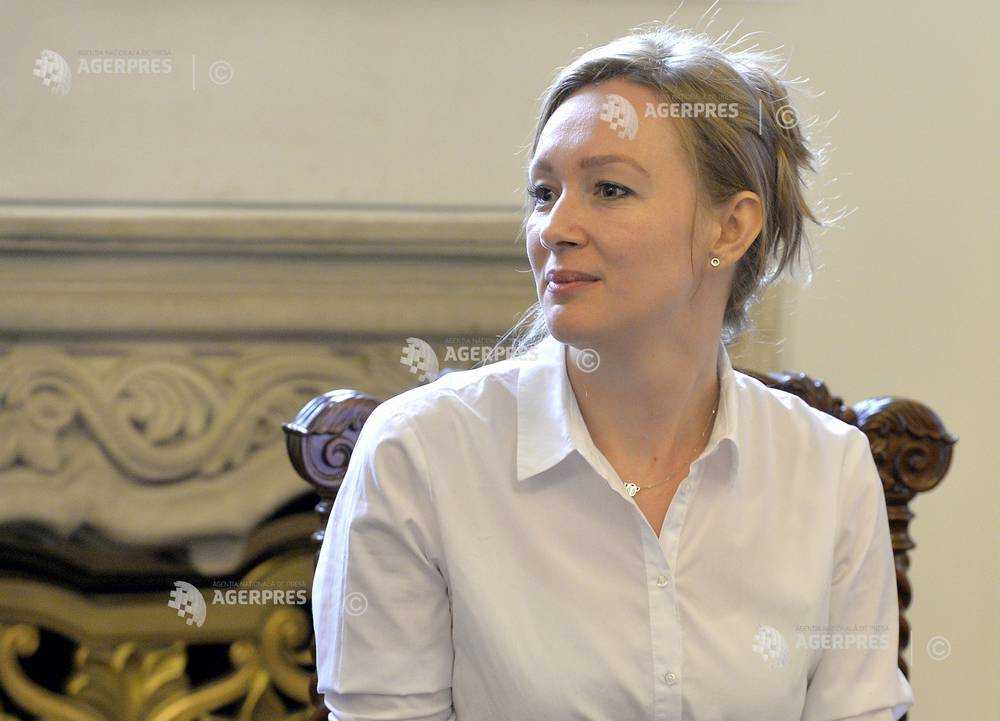The high-level roundtable placed us on the map. Organised in partnership with the Presidential Administration, the Diaspora Initiative launched its global mapping analysis of the Romanian diaspora, the first of its kind (Social Network Analysis). The report explored interactions (online & offline) between diaspora organisations in host countries & at transnational levels, examining rapports with institutions (in Romania and elsewhere) as well as the overall impact ( transnational / national / subnational) of diaspora initiatives. This knowledge base enabled us to elaborate a series of policy& strategic recommendations.

OUR PARTNERSHIPS
Our Collaboration
In Romania, the Presidential Administration has been our first institutional partner. At the roundtable, chaired by Professor Dana Diminescu from Telecom Paris Tech, we introduced the diaspora mapping concept for the first time, with a preliminary analysis of how Romanian communities interact, and assessing the impact of their initiatives globally. It was also the starting point for the many partnerships to come.


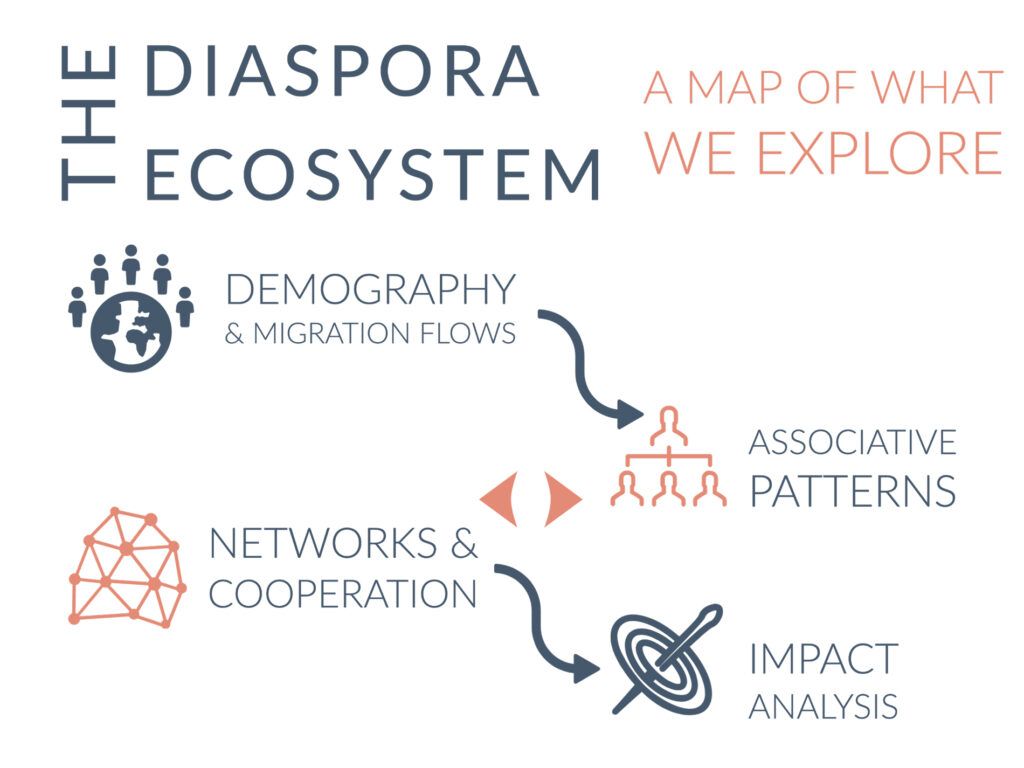
CONTEXT & SCOPE
The roundtable organised at the Presidential Palace, gathered decision-makers, academics, experts and practitioners to discuss for the first time the importance of creating a knowledge base regarding the diaspora, and how this repository can further inform evidence-based policy-making. Our intention was to de-politicise the discourse about the diaspora, by bringing the inquiry closer to the day-to-day realities, grievances and aspirations of those abroad.
Before pursuing any meaningful strategy for diaspora engagement, some essential questions had to be asked: How many Romanians live, work and study abroad? How do they associate? What diaspora organisations / associations are out there and what is their scope? How do organisations and communities interact / cooperate? What is their rapport with institutions in Romania and abroad? What is the overall impact of diaspora initiatives? And ultimately, how can the Romanian diaspora, given its significant demographic presence become truly relevant and influential, transnationally? The roundtable provided us with an opportunity to flesh out our research and present a different approach to analysing and engaging the diaspora.
Impact
FINDINGS & IMPACT
Preliminary Recommendations
Know your Diaspora
Tailor support and integrate diaspora know-how
Policy evaluation & audit
Impact
For us
For institutions
Explore media
Our mapping analysis was the first of its kind. Why do we think it’s a necessary departure point for better, more informed decision-making? First and foremost, through our innovative methodology, we can now visualise how Romanians organise themselves abroad, how they connect and interact with other associations, as well as institutions. Secondly, we analyse the scope and impact of all diaspora initiatives. Our recommendations and insights (which can be consulted by reading the report, see the Useful Resources section. below) are based on the unique, publicly available data we have diligently collected, codified, organised, and interpreted over the years. For diaspora entities (formal associations, informal groups, Romanian schools, Orthodox parishes, businesses, platforms etc.) the networked visualisation allows them to explore connectivity, and scope for future opportunities: What other entities have similar projects? With whom can they cooperate and pool resources for more ambitious projects? For institutions, tailoring policies, strategies and decisions becomes an imperative: Are funding mechanisms responsive to diaspora needs and ambitions? Are institutions supporting impactful projects? Are funding criteria relevant and up to date? The diaspora, with its immense social, economic, and political capital can become truly impactful, if supported strategically. We are not there yet, but we propose an analytical tool that can help tailor a more ambitious future, an incubator for more impactful diaspora initiatives.
- Generate and use a substantive knowledge-base, on demography, migration trends and associative patterns (globally, but also applied to host-countries).
- Assess the impact of diaspora initiatives and collaborations, in order to gauge the relevance and influence of Romanian communities transnationally.
- Share knowledge across different institutions and agencies to better support and engage the diaspora.
- Funding mechanisms must adapt to respond to actual needs, also informed by the context of host countries, where Romanians live, work and study.
- Support the growth of organisational capacities for diaspora organisations / associations because this will help them pursue more ambitious agendas and partnerships.
- Utilise this social capital from abroad by integrating know-how, expertise and other diaspora contributions into governance processes.
Perhaps one of the most relevant points, institutions ought to evaluate all the diaspora policies, strategies so far, the degree of implementation, as well as their effectiveness, before pursuing any future diaspora strategy – a systematic policy review of what worked and what hasn’t.
The roundtable placed our research, expertise and policy approach on the map. The mapping of diaspora demography, impact and associative models became both an organisational and an institutional resource.
HOW?
For us and other diaspora organisations / communities the networked approach helped us identify potential like-minded partners, with whom to pool resources and mobilise know how in pursuing long-term civic agendas with a transnational impact (see the diaspora mobilisation for voting abroad initiative)
For institutions, as well as for diplomatic missions our comprehensive analyses of Romanian communities abroad provide a basis for better, more effective engagement, applied to the context of each host country. Our research also scopes bilateral opportunities, therefore bridging national interests (explore our other projects mapping the diaspora in different countries)
USEFUL RESOURCES
USEFUL RESOURCES
Read / download our report and key findings here RO
Explore our presentationRO
Explore other presentations from the roundtableRO
Prof. Dana Diminescu, Project on networked E-diasporas can be accessed here
Tara Fagarasului Community Foundation (2019). Report on diaspora potential involvement in Fagaras region: perspectives on reintegration.RO
Alexandra Ioan (February 2019). Civic Engagement for Democracy From Abroad: Hungarian, Polish, and Romanian Diasporas (GMF Policy Paper 2)





